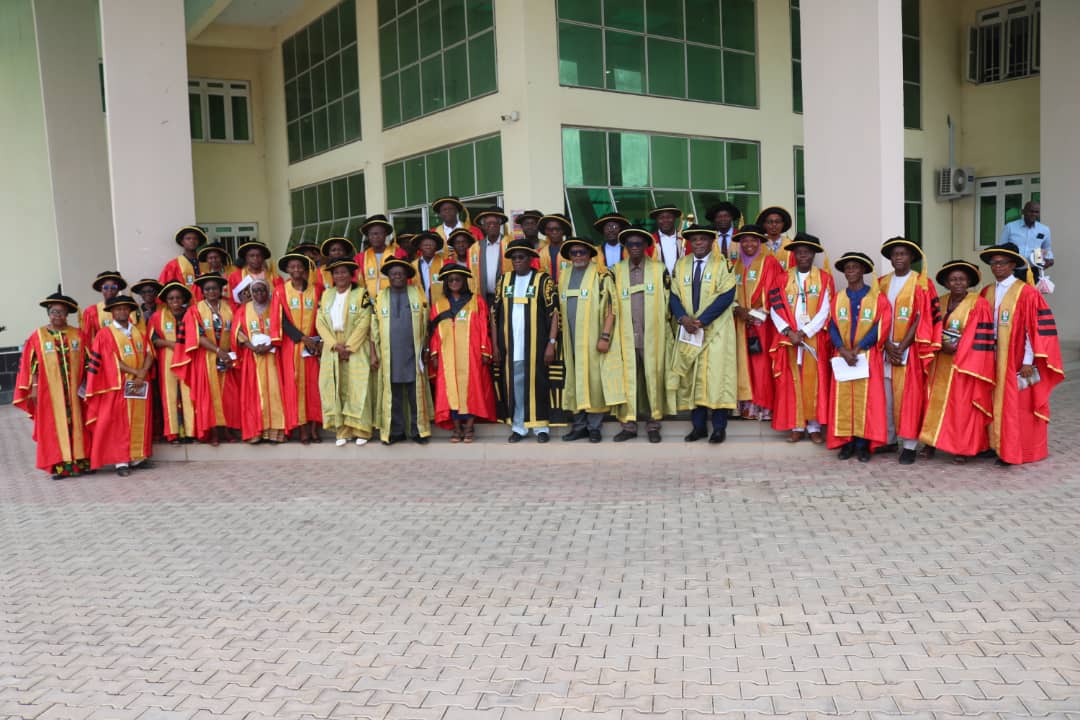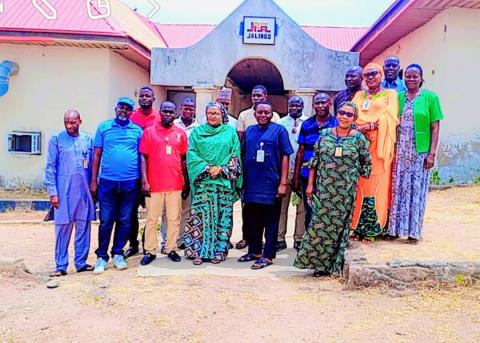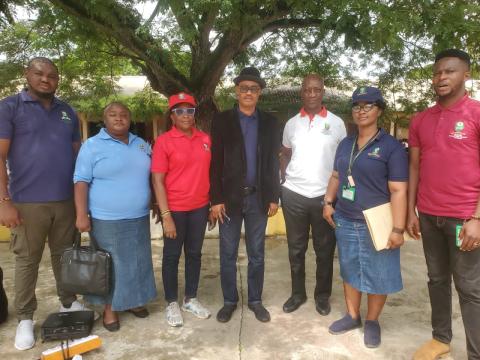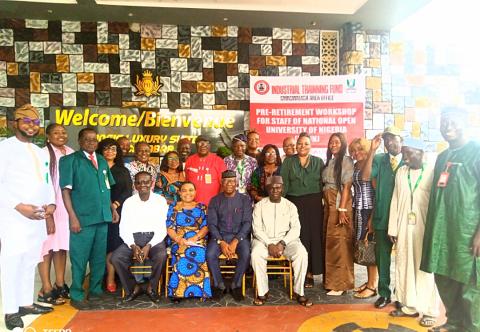Public Health Education: Key to Unlocking the "One Health" Concept, Argues NOUN Professor
Abuja, Nigeria – The ambitious "One Health" approach, advocating for the interconnectedness of human, animal, and environmental well-being, risks failure without a strong foundation in public health education. This was the central argument presented by Professor Gloria Oiyahumen Anetor, a Professor of Public Health at the National Open University of Nigeria (NOUN), during her 33rd Inaugural Lecture.
The lecture, held Thursday at NOUN headquarters in Abuja, saw Anetor, a member of the university's Faculty of Health Sciences, deliver a compelling case for prioritizing public health education as the cornerstone of any effective national health strategy. She titled her presentation, "Achieving the One Health Concept: A Mirage Without Public Health Education."
Anetor warned against the dangers of underestimating the role of public health education, labeling it the "front row" of national health preparedness. Neglecting this vital component, she argued, creates a critical vulnerability in global health security.

The professor also voiced concerns regarding the insufficient recognition of health educators. She passionately advocated for increased investment in various educational avenues, including school-based programs, graduate-level studies, and community-driven initiatives. "Health educators are not just messengers," she emphasized, "they are translators of complex health information into life-saving community programs."
Anetor underscored the symbiotic relationship between public health and health education, asserting that a population equipped with the knowledge and behaviors necessary for wellness is crucial for the success of the One Health framework. She stated that the health of humans, animals, and the environment are inextricably linked.
Highlighting that over 60% of human diseases are zoonotic, meaning they are transmitted from animals to humans, Anetor emphasized the urgent need for an integrated health approach. She cited historical events like the Minamata disease in Japan and the recent COVID-19 pandemic as stark reminders of the One Health model's enduring relevance.

Anetor clarified that health education extends beyond mere awareness, focusing on driving behavioral change, particularly in addressing lifestyle-related diseases like cancer and stroke. She argued that a holistic, multi-sectoral approach is essential for tackling Nigeria's pressing health challenges.
She further identified pollution, inadequate waste management, and climate change as environmental factors that exacerbate disease transmission by creating breeding grounds for vectors. Professor Anetor stressed that robust public health education programs empower communities to safeguard water sources, minimize toxic waste, and champion sustainable agricultural practices.
In a world increasingly vulnerable to global crises, Anetor emphasized that public health education serves as the primary defense in building resilience, enabling communities to effectively respond to, recover from, and prevent future health emergencies.
To effectively address One Health challenges, Anetor proposed several measures, including comprehensive livestock vaccination programs and improved sanitation practices around abattoirs. She also called for collaborative health initiatives involving both veterinarians and human healthcare workers.
Anetor urged policymakers to integrate public health education into national health and environmental strategies, fostering a cohesive approach across various ministries, including health, environment, agriculture, and education. This policy coherence is essential for the successful implementation of the One Health concept.
“One Health is not just a theory, it is a blueprint for survival in an increasingly interconnected world. And without public health education, that blueprint is incomplete,” she concluded.

In his opening remarks, NOUN Vice-Chancellor Professor Olufemi Peters praised the Faculty of Health Sciences for hosting the lecture and acknowledged the collaborative spirit at NOUN, particularly between the Faculties of Health Sciences and Education. He lauded Anetor’s accomplishments, describing her as a testament to tenacity, resilience, and intellectual rigor.
Professor Peters emphasized that delivering an inaugural lecture is a significant achievement, reflecting years of impactful contributions to research, teaching, and community service. "Her works and contributions to health education are a testimony to her commitment to academia and the betterment of society," he stated.
He encouraged all NOUN staff to remain dedicated to the core academic values of curiosity, critical thinking, and knowledge dissemination.
Deputy Vice-Chancellor (Academic), Professor Chiedu Mafiana, in his vote of thanks, commended Anetor for her insightful lecture and praised her dedication to advancing public health education, noting its significance for scholars, health practitioners, and policymakers.
The event drew a large audience, including NOUN principal officers, academics, teaching and non-teaching staff, and members of Professor Anetor's family.






Share your thoughts about this post